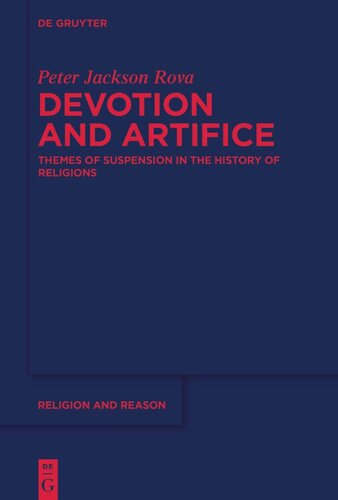

Most ebook files are in PDF format, so you can easily read them using various software such as Foxit Reader or directly on the Google Chrome browser.
Some ebook files are released by publishers in other formats such as .awz, .mobi, .epub, .fb2, etc. You may need to install specific software to read these formats on mobile/PC, such as Calibre.
Please read the tutorial at this link: https://ebookbell.com/faq
We offer FREE conversion to the popular formats you request; however, this may take some time. Therefore, right after payment, please email us, and we will try to provide the service as quickly as possible.
For some exceptional file formats or broken links (if any), please refrain from opening any disputes. Instead, email us first, and we will try to assist within a maximum of 6 hours.
EbookBell Team

0.0
0 reviewsHow have humans sought to prevent viable assumptions about themselves and their world from being in force, how does this propensity manifest itself, and in what terms has it been theorized and criticized throughout the ages?
Through a diversity of discrete case-studies spanning a vast time-scale (including topics such as paleolithic personal ornaments, pre-ancient ritual economy, ancient philosophy, and modern artful science), this study explores the means by which humans voluntarily suspend habitual patterns of judgement and disbelief in order to perceive the world differently. In recognizing how such modes of suspension can be variously traced back to religious comportments and institutions, a new sense of religious participation is identified beyond the credulous subjunction to artifice and its critical dismissal.
The relevant outcome of this long-term comparative approach is that sincere devotion to a (practical or theoretical, scientific or spiritual) cause and the temporary affirmation of artifice are not mutually exclusive comportments, but rather genealogically akin to the discretely sacred (alchemical, ataraxic, epistemological, spectacular, thaumaturgic, etc.) concerns of a pre-modern world.